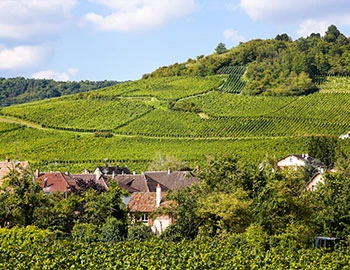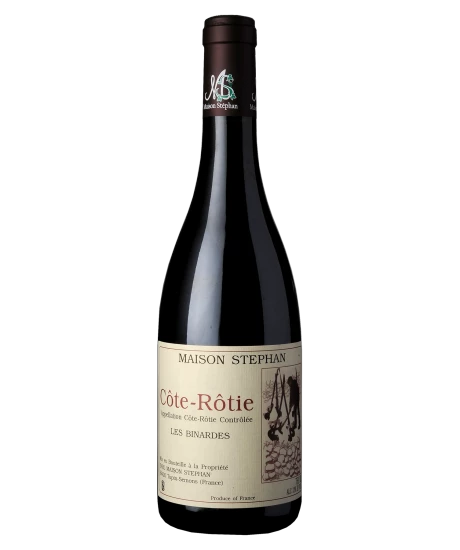Les Binardes 2020
AC Côte-Rôtie, Maison Stéphan, 750 ml

Description
Les Binardes is the result of Jean-Michel Stephan's decades of experience and his lifelong pursuit of his vision: making impeccable wines without any additives such as SO2, etc., which exude a special balance and energy. This cuvée of Syrah and Viognier has aromas of dark cherries, mulberries, tangerine and bergamot. On the palate, it presents itself elegantly and languidly with soft tannins and a drinkable juiciness. Aromas reminiscent of dark berries. The high aroma density leads to a punchy, long finish. This wine benefits from being aerated before drinking. A delight with venison with green beans and Jerusalem artichoke puree. We recommend decanting the wine or opening it a few hours before drinking.
Attributes
| Grape variety: | Syrah, Viognier |
| Producer: | Maison Stéphan |
| Origin: | France / Rhône / Côte Rôtie |
| Label: | Certified organic or biodynamic wine |
| Ripening potential: | 2 to 8 years |
| Drinking temperature: | 16 to 18 °C |
| Food Pairing: | Saddle of lamb fillet with herb jus, Wild fowl, Spicy hard cheese |
| Volume: | 13.5 % |
| Note: | Contains sulphites |
Maison Stéphan
Jean-Michel Stéphan has vinified more than 30 vintages of Côte-Rôtie and is one of the true masters of natural winemaking (vins naturels) in the northern Rhône region. His wines have a vibrant purity that makes them unmistakable, characterised by a balance of energy and transcendence that stems from his vision of making impeccable wines without any additives.
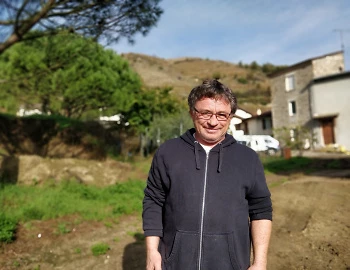
Viognier
Saved from extinction
It’s hard to believe that the Viognier nearly became extinct 50 years ago. Today, it grows worldwide on over 10,000 hectares. The variety was first mentioned in 1781, and probably originated in Condrieu, in the northern Rhône Valley. There, and in the 3.8-hectare mini-appellation of Château-Grillet, vintners kept it on the post when the rest of the world wanted to know nothing about it. Its inventory shrank to a meagre 14 hectares. This is because it provides only low yields, and for a while there were no good seedlings. In the 1980s, interest in Viognier reawakened. It actually shows a unique profile: deep golden with good body and aromas of apricot, lime blossom, citrus fruits, honey and hazelnut. It is popular in the Languedoc region, flows into the white Côtes du Rhône and also does very well in California. The best examples fit wonderfully with poultry in cream sauce, noble fish like turbot or – why not? – lobster.
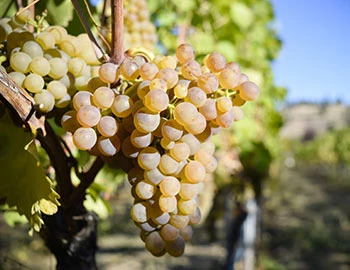
Syrah
A hint of pepper
The legend stubbornly persists that the Syrah variety came from the Persian city of Shiraz. Yet, researchers have shown that it is a natural crossing of two old French varieties: the red Dureza from the Rhône Valley and the white Mondeuse blanche from Savoy. Wines from Syrah are gentle and concentrated. They smell of dark berries, violets and liquorice, and amaze with a piquant touch of white pepper. As varietal wines, they are found on the northern Rhone, as in the Hermitage or Côte Rôtie appellations, as well as in Swiss Valais. In the southern Rhône Valley, Syrah is often wedded with Grenache and Mourvèdre. In 1832, a Frenchman brought the variety to Australia, where it became the emblem of the national wine industry. There, the weightiest versions develop with typical notes of tar and chocolate.
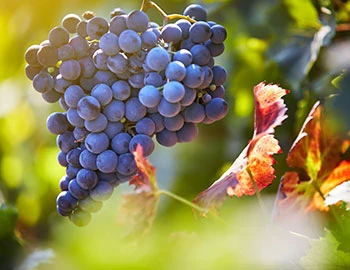
Rhône
Rhône: northern power, southern charm
The Rhône’s source is in Valais, and it flows into the Mediterranean 800 kilometres to the south. In the last 200 kilometres of its course, it is lined with vines which yield a range of red crus that are among the most prestigious wines in the world – for example, on the spectacular cliffs of the Hermitage Mountains, or in the gravelly terraces of Châteauneuf-du-Pape. The river valley, however, is also a rich source of characterful white wines and affordable, high-quality, everyday red wines.
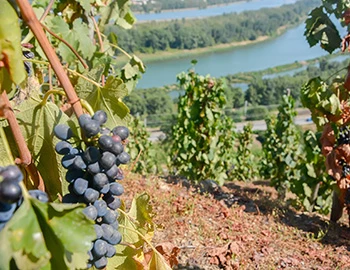
France
France – Philosophy in a bottle
According to French philosophy, wine should be an expression of the soil and climate. They use the word “terroir” to describe this. Terroir makes every wine different, and many especially good. French wine is regarded worldwide as an expression of cultural perfection. The French believe that humans are responsible for the quality of the berries, the vine variety for their character, and nature for the quantity. This philosophy can be expressed succinctly as: “the truth is the vineyard, not the man.”
